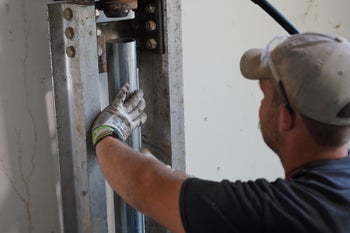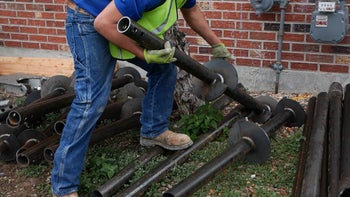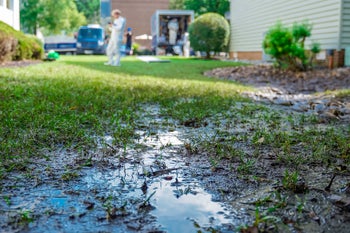Do Uneven Floors in A House Always Mean Foundation Trouble?
Table of Contents
1. What Causes Uneven Floors In A House?
2. What Causes Differential Foundation Settlement?
3. Are Uneven Floors In A House Dangerous?
4. Signs A Foundation Problem Might Be Causing Your Home’S Uneven Floor
5. How To Repair Uneven Floors In Your House
6. How To Prevent Uneven Floors In A House
Are you looking for information about uneven floors in your house? If so, don’t hit that back button because you’ve landed on the right page.
Uneven floors in a house are usually a sign of a foundation problem, but not always. For example, if you live in a house with a crawl space foundation, uneven floors might be a sign the support posts in your crawl space have settled, or the screw jacks have deteriorated and rusted out. While this problem needs to be fixed, it’s not considered a foundation issue. On the other hand, if you live in a home with a basement or slab foundation, uneven floors are probably caused by a foundation problem.
In this article, we’re going to talk about what causes uneven floors in a house, repair options for a house with uneven floors, how to prevent uneven floors, and more.
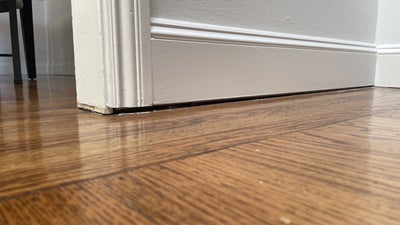
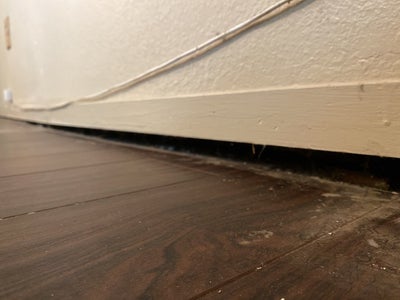
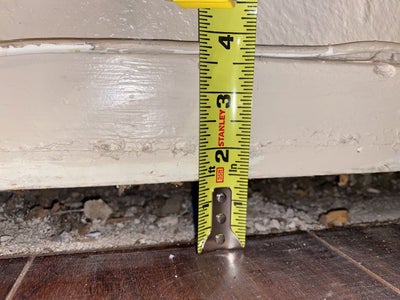
What Causes Uneven Floors In A House?
For a crawlspace foundation— yes, there are other causes, such as deteriorated screw jacks in a crawl space foundation. However, except for crawl space foundations, the most common cause of uneven floors is a foundation problem caused by differential settlement.
What is differential settlement? While most homes will settle into the soil slightly after their built, differential settlement happens when the house settles into the soil unevenly . This could be from soil movement and expansion from the dry season. However, differential settlement is the leading cause of foundation damage because it puts the house’s frame out of kilter. See the illustration below.
Note: By “uneven floors,” we mean sloping floors. We don’t mean things like a warped hardwood floor that might have been caused by water damage. Uneven floors usually aren’t caused by problems with the floor itself. It is best to have an expert come out to inspect the foundation and take elevations of the home.
What Causes Differential Foundation Settlement?
Various things can cause differential settlement, including:
- Soil that wasn’t adequately compacted before construction began – Before construction on the foundation begins, the soil needs to be adequately compacted. If it isn’t, the house will unevenly settle into the soil, causing differential settlement and foundation trouble.
- Expansive soil – Expansive soil expands when it absorbs moisture and shrinks when it dries out. This creates movement under the foundation that can eventually lead to foundation trouble.
- Poor drainage around the foundation – Poor drainage is especially problematic with expansive soils or soils prone to erosion.
- Change in weather – An example of this would be building a house on expansive soil during the dry season. When the rainy season comes around again, the soil expands, causing movement under the foundation.
- Excavation next to the foundation – Heavy excavation close to your foundation can cause trouble.
- Earthquakes and other natural disasters – This one needs no explanation.
- Tree roots – Large trees have extensive roots systems with the ability to destabilize a foundation eventually. This is why large trees should be planted at least 20 feet away from the foundation.
- Poor design or construction – Sometimes, the house just wasn’t designed properly. It happens.
For more information, see Foundation Settlement.
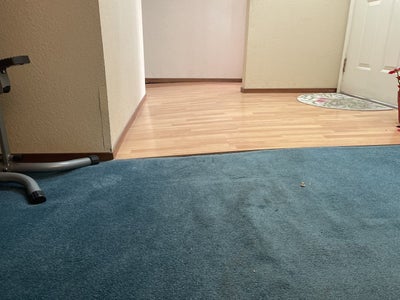
Are Uneven Floors In A House Dangerous?
Uneven floors can certainly become a trip hazard and unsightly over time. So, yes, they could be dangerous, especially for people with mobility issues. However, the real problem is whatever caused the differential settlement that led to the floor becoming uneven. If differential settlement isn’t fixed, it could lead to structural damage. So, if your home has uneven floors, you should contact a foundation repair professional and request an inspection. Problems caught early can be less expensive to repair.
Signs A Foundation Problem Might Be Causing Your Home’S Uneven Floor
If you have uneven floors in your house, look for other signs of a foundation problem. These include:
- Windows and doors that don’t open and close properly
- Floors and ceilings that are no longer in contact with the wall
- Floor cracks
- Cracked walls
- Bowed walls (Sometimes, a basement wall will be both bowed and cracked.)
- Diagonal cracks from the corners of windows and doors toward the ceiling
- Moldings that have separated from the wall or ceiling
- Stair step cracks in brick or masonry
- Chimneys that are separating from the rest of the house
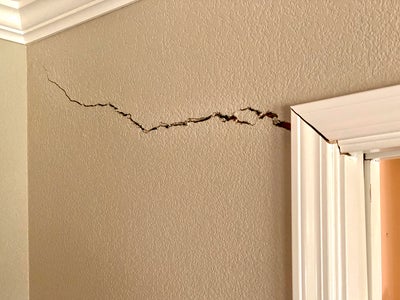
How To Repair Uneven Floors In Your House
Unless you live in a house with a crawl space foundation, your uneven floors are almost certainly being caused by differential settlement. Therefore, you can correct the uneven floors in your house by fixing the differential settlement. This is done via a foundation repair method called underpinning and installing piers to lift, and stabilize the foundation from any future settlement.
Foundation underpinning is typically done using resistance push piers, helical piers, drilled concrete piers, or slab piers.
If you live in a home with a crawl space foundation, your uneven floors are most likely caused by deteriorated screw jacks or settled support posts. In this case, the solution is to replace the screw jacks or support posts. We install a Galvanized Screw Jack to protect from any corrosion, and can be adjusted unlike a wooden support post. Offering a variety of different crawl space jacks (High Capacity, Heavy Duty, and Standard Screw Jacks) to fix your homes uneven flooring. For more information, see Underpinning A House: What Every Homeowner Needs To Know.
How To Prevent Uneven Floors In A House
You can go a long way toward preventing uneven floors in a house by getting groundwater under control:
For more information, see The Link Between Foundation Damage And Excess Soil Moisture.
If your home in our Northern California service area has uneven floors, contact us today for a free inspection and repair estimate.
FAQs
If you suspect foundation problems, it’s crucial to contact a foundation repair specialist for an inspection. They can assess the situation and recommend the best course of action.
While superficial fixes can level the floor temporarily, if the unevenness is due to foundation issues, addressing the root cause is necessary for a long-term solution.
The cost can vary widely depending on the extent of the damage and the required repairs. Minor fixes may be relatively inexpensive, while significant foundation repairs can be costly.
More Resources
Publish Date:
Last Modified Date:

Our Locations
2333 Courage Dr. Suite C
Fairfield, CA 94533
1161 N Fair Oaks Ave
Sunnyvale, CA 94089

